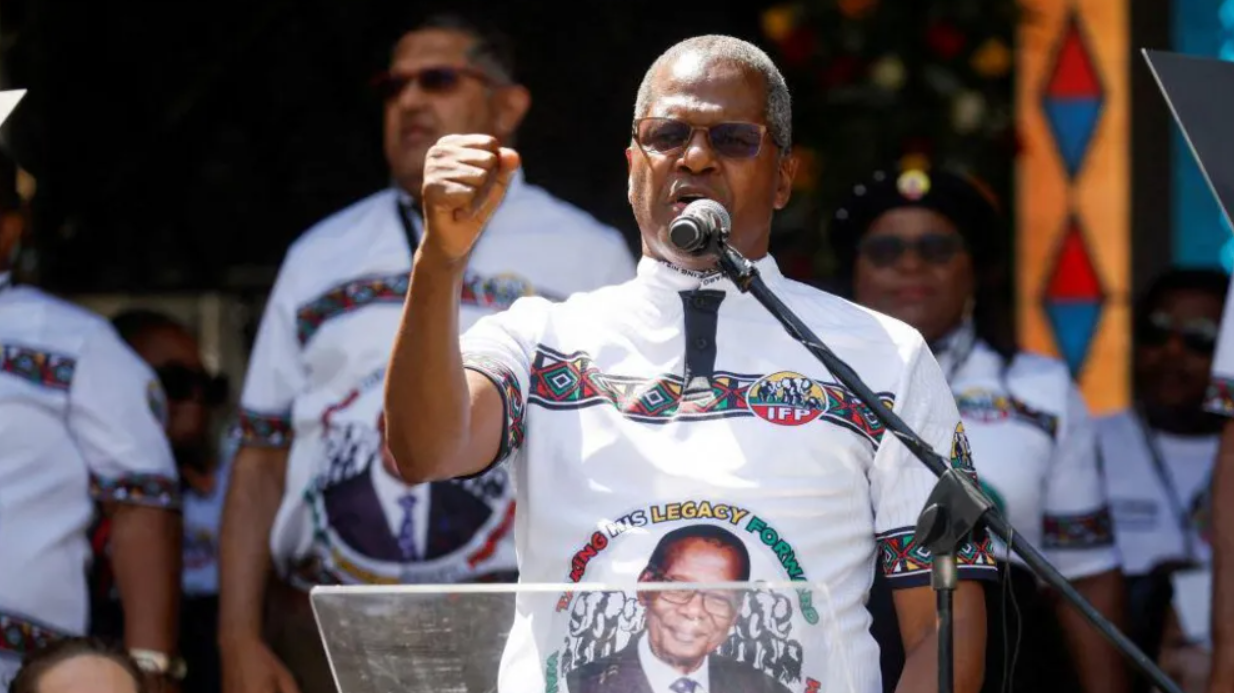A Watershed Moment in South African Politics: The Inkatha Freedom Party’s Entry into the Unity Government
Under Velenkosini Hlabisa’s leadership, the Inkatha Freedom Party (IFP) has formally announced its intention to join the Democratic Alliance (DA) and the African National Congress (ANC) in a unity government. An important turning point in the political history of South Africa was marked when this major political development was proclaimed at a press conference in Durban.
A Plea for Harmony
To to Hlabisa, “The people of South Africa who voted said that political parties must find common ground.” This statement highlights the need of cooperation. The ANC’s loss of the majority in last month’s elections prompted widespread interest in who will head the country’s administration, which led to this choice.
Background and Contemporary Factors
While the DA and ANC have yet to provide official remarks, this statement marks the initial formality of a unity government deal. In an effort to build a stable coalition, the ANC has reached out to several opposition groups, expressing its desire for a unity government.
There is an overwhelming sense of urgency to reach a consensus before Friday, when the new parliament is to be sworn in. According to the African National Congress (ANC), Cyril Ramaphosa is still the head of state. The African National Congress (ANC) saw its vote share drop below 50% for the first time since apartheid was ended in 1994, when Nelson Mandela won a historic triumph. To secure governance in the face of this deterioration, coalition-building initiatives have been necessary.
Result of the Election and the Chances of a Coalition
In the most recent elections, the African National Congress (ANC) received around 40% of the vote, the Democratic Alliance (DA) about 22%, former president Jacob Zuma’s MK party about 15%, and the Economic Freedom Fighters (EFF) about 9%. With a solid foundation in Zulu culture, the IFP managed to secure around 4% of the vote.
Economic Consequences and Coalition Preferences
Alliances with the EFF and MK, both headed by former ANC officials, are preferred by many within the ANC. But investors are worried about these parties’ extreme plans like nationalizing mines and expropriating land without compensation. A coalition between the ANC and the DA is more appealing to the business community because it offers a more secure and investor-friendly alternative.
To lessen the blow that the ANC is “selling out” by teaming up with the DA, which is sometimes seen as speaking for the white minority, it could be wise to include groups such as the IFP in the coalition. The coalition dynamics are further complicated by the fact that the DA is opposed to the ANC’s black empowerment program and the National Health Insurance (NHI) Bill, which seeks to offer healthcare to all.
Devotion to Security and Self-Discovery
Assuring IFP supporters, Hlabisa said, “We will participate in the government of national unity for the sake of our country and for the sake of our people, who want life to continue with a stable government that will address their challenges.” This was meant to reassure them despite the challenges they faced. He went on to say that the IFP would be true to itself, bringing up memories of coalition work from the past, such when they worked together with the National Party and Mandela’s ANC in 1994.
Future Prospects
A crucial step towards political stability has been taken by South Africa with the formation of this unity government, as the country awaits the swearing-in of the new parliament and the election of a president. Working together, various political entities demonstrate the nation’s resolve to overcome differences and tackle critical national problems.
How this combination manages to strike a balance between competing ideologies, promote economic growth and social justice, and traverse the intricate political landscape will become clear in the days to come. It is clear that South African politics is constantly changing and that the pursuit of a peaceful and prosperous future is a driving force behind the IFP’s decision to join the government of national unity.















